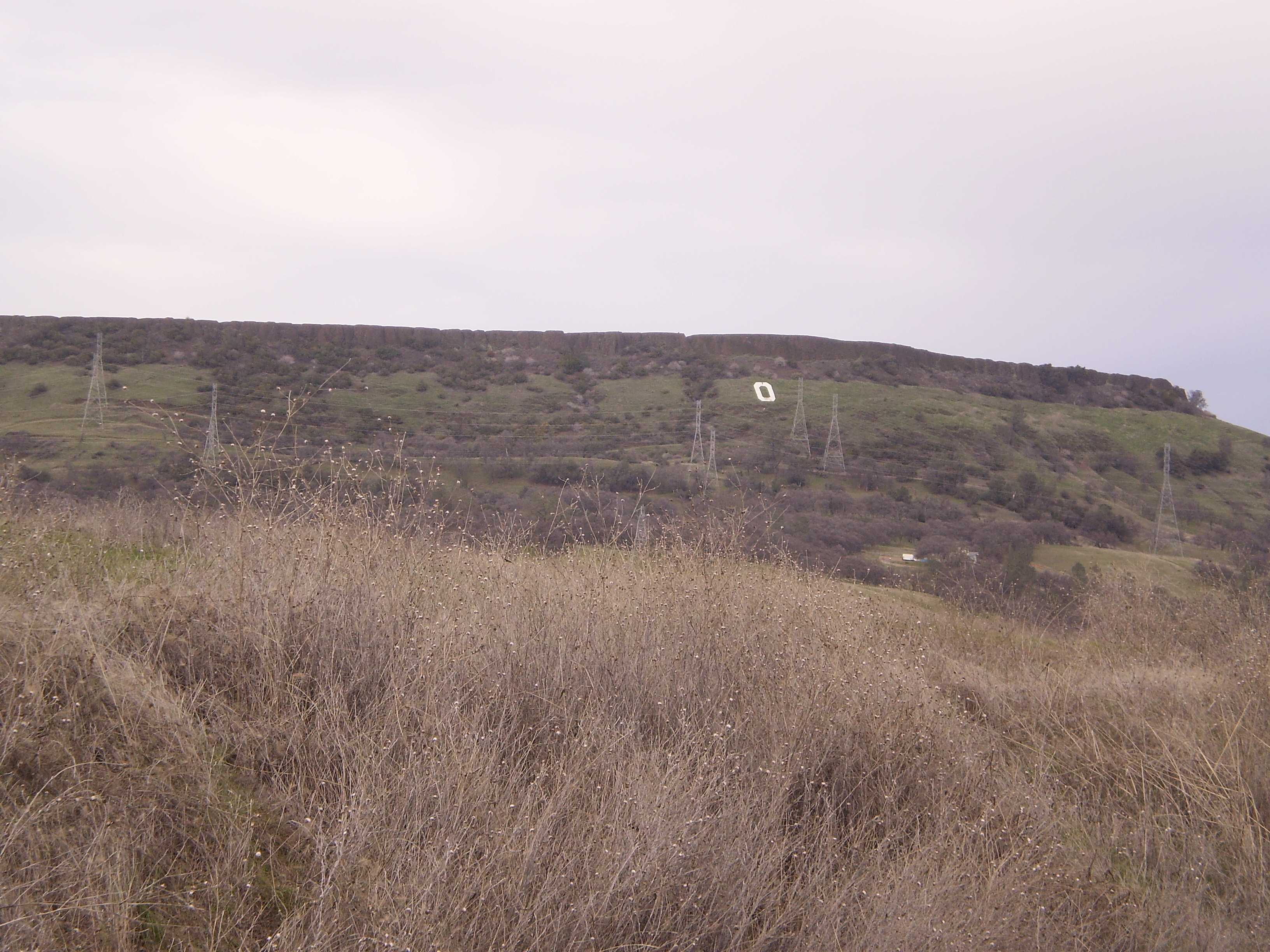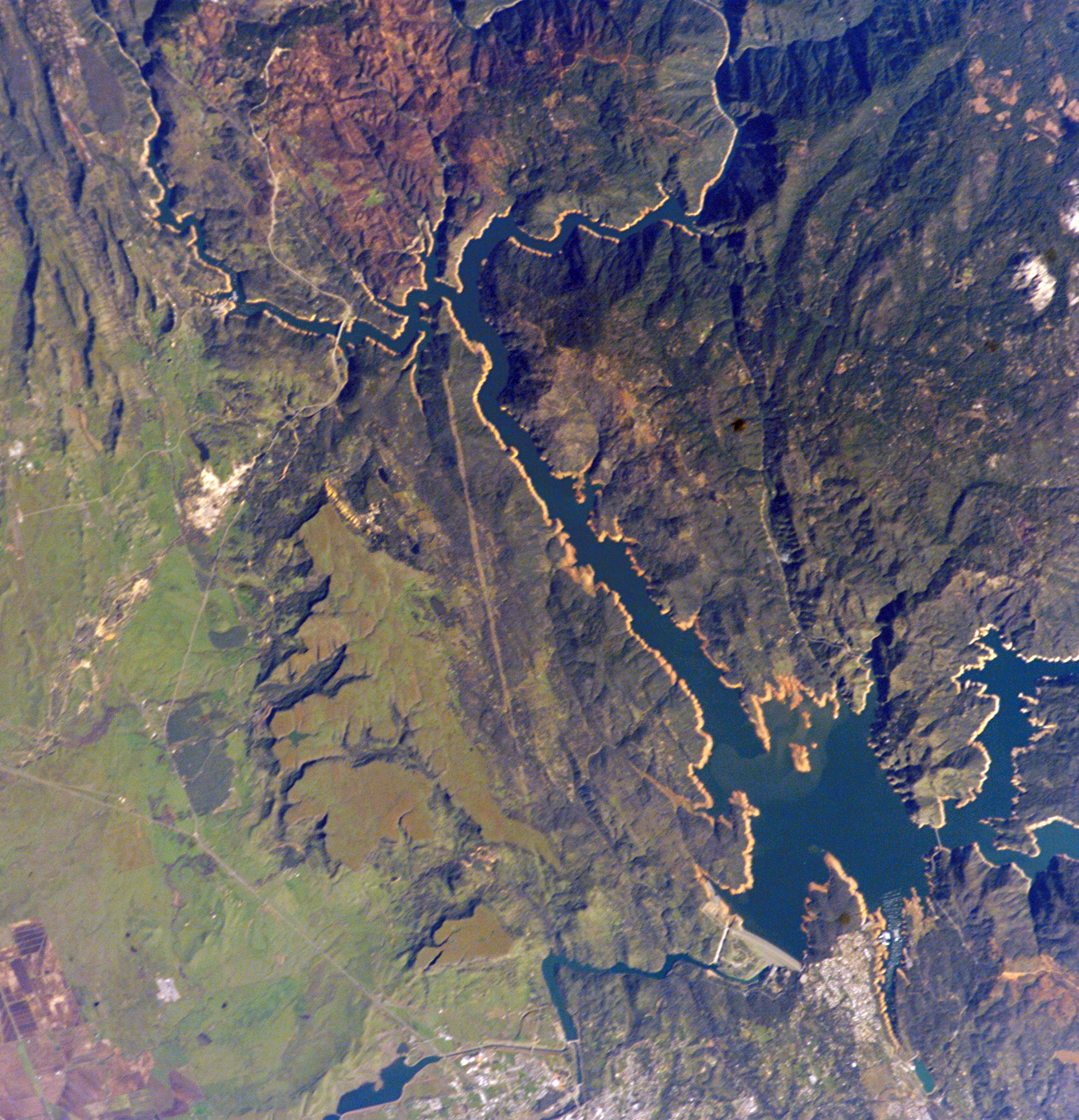|
Mission (olive)
The Mission olive is a cultivar of olive developed in California, by Spanish missions along El Camino Real in the late 18th century. The Mission olive has been included in the Ark of Taste, an international catalog of endangered heritage foods maintained by the Slow Food movement. It is also the only American olive cultivar listed by the International Olive Council in its World Catalogue of Olive Varieties. Although developed in the United States, Mission olives are also used by South African olive oil producers. Description Mission trees can reach heights of . They produce small fruit, typically of around . It has the lowest flesh-to-pit ratio (6.5:1) and greatest cold resistance of any commercial cultivar in California. Mission olives are harvested for table use from late October through November; for oil production, they are harvested between mid-December and February. They are susceptible to peacock spot, a disease caused by the fungus '' Cycloconium oleaginum'', and olive ... [...More Info...] [...Related Items...] OR: [Wikipedia] [Google] [Baidu] |
Manzanilla (olive)
Manzanilla or ''manzanilla'' (Spanish for "little apple" literally) may refer to: Plants and their products * Manzanilla (wine), a variety of ''fino'' sherry ** , a Spanish wine region * ''Manzanilla'', Spanish term for "chamomile" (any variety) or the plant's flowers, or chamomile tea * ''Manzanilla'', a common name for '' Malvaviscus arboreus'' (wax mallow, Turk's cap) and its fruit * ''Manzanilla de la muerte'' (Spanish: "little apple of death"), manchineel in English (''Hippomane mancinella''), a tree with apple-like but poisonous fruit * Manzanilla olive (''Olea europaea''), a common variety of Spanish olive cultivar Geography * Manzanilla, Spain, municipality in Huelva province, Spain * Manzanilla, Trinidad and Tobago, town in east coastal Trinidad Trinidad is the larger and more populous of the two major islands of Trinidad and Tobago. The island lies off the northeastern coast of Venezuela and sits on the continental shelf of South America. It is often referred ... [...More Info...] [...Related Items...] OR: [Wikipedia] [Google] [Baidu] |
Olive Cultivars
The olive, botanical name ''Olea europaea'', meaning 'European olive' in Latin, is a species of small tree or shrub in the family Oleaceae, found traditionally in the Mediterranean Basin. When in shrub form, it is known as ''Olea europaea'' 'Montra', dwarf olive, or little olive. The species is cultivated in all the countries of the Mediterranean, as well as in Australia, New Zealand, North and South America and South Africa. ''Olea europaea'' is the type species for the genus ''Olea''. The olive's fruit, also called an "olive", is of major agricultural importance in the Mediterranean region as the source of olive oil; it is one of the core ingredients in Mediterranean cuisine. The tree and its fruit give their name to the plant family, which also includes species such as lilac, jasmine, forsythia, and the true ash tree. Thousands of cultivars of the olive tree are known. Olive cultivars may be used primarily for oil, eating, or both. Olives cultivated for consumption are gener ... [...More Info...] [...Related Items...] OR: [Wikipedia] [Google] [Baidu] |
Mission Fig
The Mission fig (also known as Black Mission or ''Franciscana'') is a popular variety of the edible fig (''Ficus carica''). It was first introduced to the United States in 1768 when Franciscan missionaries planted it in San Diego. It was also planted in the subsequent missions that the Franciscans established up the California coast. Gustav Eisen writes, "The early padres and missionaries in the Pacific coast States cultivated no other variety of fig". It later became the main commercial variety planted throughout California. The Mission fig was later surpassed by the Sari Lop fig (also known as Calimyrna) as the most popular commercial fig variety grown in California. The Mission fig is a high quality fig variety. It produces both a breba and main crop, and is considered an everbearing variety when planted in the right climate. The breba crop is large. The main crop is medium-sized. It is a dark skinned fig with a strawberry colored interior. The skin of the fruit often cra ... [...More Info...] [...Related Items...] OR: [Wikipedia] [Google] [Baidu] |
Mexico
Mexico (Spanish: México), officially the United Mexican States, is a country in the southern portion of North America. It is bordered to the north by the United States; to the south and west by the Pacific Ocean; to the southeast by Guatemala, Belize, and the Caribbean Sea; and to the east by the Gulf of Mexico. Mexico covers ,Mexico ''''. . making it the world's 13th-largest country by are ... [...More Info...] [...Related Items...] OR: [Wikipedia] [Google] [Baidu] |
Morocco
Morocco (),, ) officially the Kingdom of Morocco, is the westernmost country in the Maghreb region of North Africa. It overlooks the Mediterranean Sea to the north and the Atlantic Ocean to the west, and has land borders with Algeria to the east, and the disputed territory of Western Sahara to the south. Mauritania lies to the south of Western Sahara. Morocco also claims the Spanish exclaves of Ceuta, Melilla and Peñón de Vélez de la Gomera, and several small Spanish-controlled islands off its coast. It spans an area of or , with a population of roughly 37 million. Its official and predominant religion is Islam, and the official languages are Arabic and Berber; the Moroccan dialect of Arabic and French are also widely spoken. Moroccan identity and culture is a mix of Arab, Berber, and European cultures. Its capital is Rabat, while its largest city is Casablanca. In a region inhabited since the Paleolithic Era over 300,000 years ago, the first Moroccan s ... [...More Info...] [...Related Items...] OR: [Wikipedia] [Google] [Baidu] |
University Of Córdoba (Spain)
The University of Córdoba (Spanish: ''Universidad de Córdoba'', UCO), is a university in Córdoba, in Andalusia, Spain , image_flag = Bandera de España.svg , image_coat = Escudo de España (mazonado).svg , national_motto = ''Plus ultra'' (Latin)(English: "Further Beyond") , national_anthem = (English: "Royal March") , i ..., chartered in 1972. It offers undergraduate and postgraduate studies in humanities, social sciences, health sciences, natural sciences and engineering. History Although it was established in 1972, UCO is the inheritor of the Free University of Córdoba (''Universidad Libre de Córdoba''), which operated in the province in the late 19th century. Centenary institutions like the Faculty of Veterinary Science depend on UCO. UCO stands out for its specialization in natural sciences, offering degrees in chemistry, biology, environmental sciences and agronomic and forest engineering. It is also specialized in heal ... [...More Info...] [...Related Items...] OR: [Wikipedia] [Google] [Baidu] |
Mission San Diego De Alcalá
Mission Basilica San Diego de Alcalá ( es, Misión San Diego de Alcalá) was the second Franciscan founded mission in The Californias (after San Fernando de Velicata), a province of New Spain. Located in present-day San Diego, California, it was founded on July 16, 1769, by Spanish friar Junípero Serra in an area long inhabited by the Kumeyaay people. The mission and the surrounding area were named for the Catholic saint Didacus of Alcalá, a Spaniard more commonly known as ''San Diego''. The mission was the site of the first Christian burial in Alta California. The original mission burned in 1775 during an uprising by local natives. San Diego is also generally regarded as the site of the region's first public execution, in 1778. Father Luis Jayme, California's first Christian martyr who was among those killed during the 1775 uprising against the mission, lies entombed beneath the chancel floor. The current church, built in the early 19th century, is the fifth to stand on this ... [...More Info...] [...Related Items...] OR: [Wikipedia] [Google] [Baidu] |
Franciscan
The Franciscans are a group of related Mendicant orders, mendicant Christianity, Christian Catholic religious order, religious orders within the Catholic Church. Founded in 1209 by Italian Catholic friar Francis of Assisi, these orders include three independent orders for men (the Order of Friars Minor being the largest contemporary male order), orders for women religious such as the Order of Saint Clare, and the Third Order of Saint Francis open to male and female members. They adhere to the teachings and spiritual disciplines of the founder and of his main associates and followers, such as Clare of Assisi, Anthony of Padua, and Elizabeth of Hungary. Several smaller Franciscan spirituality in Protestantism, Protestant Franciscan orders exist as well, notably in the Anglican and Lutheran traditions (e.g. the Community of Francis and Clare). Francis began preaching around 1207 and traveled to Rome to seek approval from Pope Innocent III in 1209 to form a new religious order. The o ... [...More Info...] [...Related Items...] OR: [Wikipedia] [Google] [Baidu] |
Butte County, California
Butte County () is a county located in the northern part of the U.S. state of California. In the 2020 census, its population was 211,632. The county seat is Oroville. Butte County comprises the Chico, CA metropolitan statistical area. It is in the California Central Valley, north of the state capital of Sacramento. Butte County is drained by the Feather River and the Sacramento River. Butte Creek and Big Chico Creek are additional perennial streams, both tributary to the Sacramento. The county is home to California State University, Chico and Butte College. History Butte County is named for the Sutter Buttes in neighboring Sutter County; ''butte'' means "small knoll" or "small hill" in French. Butte County was incorporated as one of California's 19 original counties on February 18, 1850. The county went across the present limits of the Tehama, Plumas, Colusa, and Sutter Counties. Between November 8 and 25, 2018, a major wildfire, the Camp Fire, destroyed most of th ... [...More Info...] [...Related Items...] OR: [Wikipedia] [Google] [Baidu] |
Oroville, California
Oroville (''Oro'', Spanish for "Gold" and ''Ville'', French for "town") is the county seat of Butte County, California, United States. The population of the city was 15,506 at the 2010 United States Census, 2010 census, up from 13,004 in the 2000 United States Census, 2000 census. Following the 2018 Camp Fire (2018), Camp Fire that destroyed much of the town of Paradise, California, Paradise, the population of Oroville increased as many people who lost their homes relocated to nearby Oroville. In 2019, the California Department of Finance estimated the population of Oroville is 20,737. Oroville is considered the gateway to Lake Oroville and Feather River recreational areas. The Berry Creek Rancheria of Maidu Indians of California is headquartered in Oroville. Oroville is located adjacent to California State Route 70, State Route 70, and is in close proximity to California State Route 99, State Route 99, which connects Butte County with Interstate 5 in California, Interstate 5. T ... [...More Info...] [...Related Items...] OR: [Wikipedia] [Google] [Baidu] |
Ten Speed Press
Ten Speed Press is a publishing house founded in Berkeley, California in 1971 by Phil Wood. Ten Speed Press was bought by Random House in February 2009 and is now part of their Crown Publishing Group division. History Wood worked with Barnes & Noble in 1962, Penguin Books in 1965, and had a senior sales position at Penguin Books in Baltimore and New York before founding Ten Speed Press. Wood died of cancer in December 2010. Ten Speed's first book was ''Anybody’s Bike Book'', which is still in print. It inspired the publisher's name and has sold more than a million copies. Ten Speed's all-time best-seller is '' What Color is Your Parachute? A Practical Manual for Job-Hunters and Career-Changers'' by Richard N. Bolles (1972). It has been reissued in new editions and, as of 2009, has sold more than ten million copies, translated into 20 languages. Ten Speed has published numerous other non-fiction titles, including ''Moosewood Cookbook'', '' White Trash Cooking,'' '' Why Cats ... [...More Info...] [...Related Items...] OR: [Wikipedia] [Google] [Baidu] |




